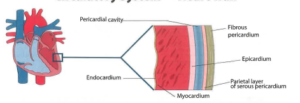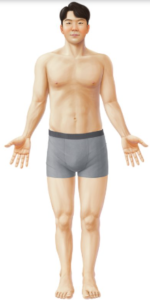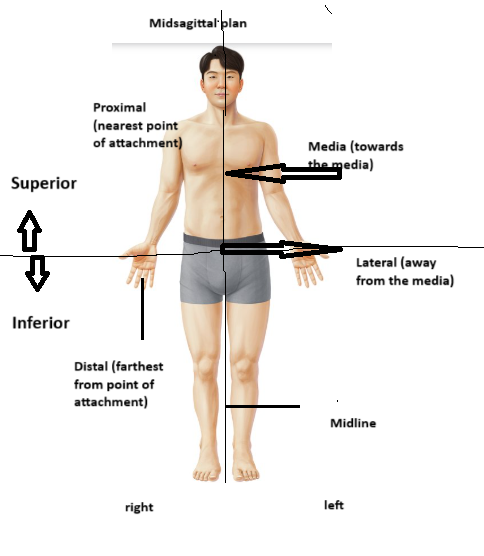Basic words of Anatomy & Physiology
Basic words of Anatomy & Physiology
Analysis of medical word parts
Medical wards are made up form the following words part ; Roots , suffix , prefixes ,and not all medical words Have all three parts, but we will start by looking at an example that does . The word is perineuritis . It means Information Around a nerve. When you break the word Into its award part you will have following.
- peri- is = prefix
- neur is =root
- -itis is= suffix
Roots
A root is the main part of medical word. It often refers to a body parts. example used in this chapter are :
- aden means gland
- arthr means joint
- col means colon
- hemat means blood
- neur means nerve
- oste means bone
Combination Vowel
The combination vowel is usually “o” It can be used to connect a root to a suffix (Or) to join two roots. When connecting a root to a suffix the combining vowel is used Only when the suffix starts With a consonant such as in the word “hematology” Above . If the suffix starts with a vowel ( a, e, i, o, u ) The combination vowel is not needed .For example in the word arthritis , we do not add the combination vowel to arthr because the suffix -its strats with a vowel .
As stated, the combination vowel can also be used to joint two roots .For example ,in the word “osteoarthritis ” the combination vowel joints the roots oste and arthr.
Example
osteoarthritis (inflammation of bone and joint )
oste + o + arthr + -itis
↑ ↑ ↑ ↑
root = bone combining vowel root = joint suffix + inflammation
1.Underline the suffix in the following words :
- adenoma
- hematology
- osteoarthritis
- dysphasia
2. Underline the prefix following words:
- dysphasia
- polyadenoma
ROOTS
aden/o = gland
arthr/o = joint
hemat/o = blood
neur/o = nerve
oste/o = bone
SUFFIX
algia ; -dynia = pain
-itis = inflammation
-logy = study of
-oma = tumor ; mass
-phasia = speech
PREFIX
dys- = difficult ; pain ; bad
peri- = around
poly- = many
Basic body structure.
Anatomy and Physiology
Two times Often used in this Text are Anatomy and physiology. Anatomy is the study of structure are part of the body. physiology is The study of how a body part functions .
Level of Organization
All life consisted of microscopic living Structures called cell. They perform various functions Throughout the body. All cells are similar in structure but not identical each has a cell membrane which acts as a barrier separating the inside of the cell from It’s surrounding the inside of the cell is called the cytoplasm the cytoplasm contains small organs called organelles carry on life functions as mentioned below .
The central portion of the cell Is a nucleus. The nucleus contains DNA . The human DNA contains thousands of genes, which are responsibly for transmitting Hereditary characteristic such as the shape of the body and color of the hair. Chromosomes are structure in the nucleus that carry the DNA And likewise the genetic information of each cell. DNA analysis is used to identify individual and to prove genetic relationship.
- The body cells carry on all of the functions Of life such as:
- Taking in food and oxygen
- Produce heat and energy
- Eliminating wastes
- Responding to changes in environment
- Reproducing
Trillions of cell makes up the cellular level which is the first level of organization of the body .
The next level is called tissues . Similar said working together to perform a specific functions combined to make tissue for example Muscle cells from muscle tissue nerve cells from nervous tissues, A histologist is Someone who specializes in the study of tissues . The major tissue is are :
Epithelial tissue : epithelial tissue covers external surface of the body , lines body structures ,and from glands, The skin is an example of an organ that is made up of epithelial tissues. Mucus Membrane is also made up of epithelial tissue . It is found Lining the digestive, respiratory, reproductive, and urinary tracts
Connective tissue: Connective tissue functions to support and shape the body structures and keep them in place .tendons and ligaments blood , bone, Cartilage and fat examples of connective tissue.
Muscle tissue :Muscle tissue takes its name from its Location in the body ; for example in the heart is called cardiac muscle tissue with organs such as the stomach and intestine it is called visceral Muscle tissue . Muscle Associated with bones is called skeletal muscle tissue. all muscles no matter where their location create moment of some kind . Muscle cells are not round but long And slender for this reason muscle cells are often referred to as fibers.
Nervous tissue: This tissue makes up nerves that conducted electrical impulses throughout the body . the brain ,spinal cord , and nerves are made up of nervous tissue.
The next level of organization is the organs. Tissues of all types combine to make up organs such as the muscles, nerves, Liver and heart.
Related organs make up body Body systems such as the muscular and nervous systems. All of the body systems combined to form the human beings. This level of organisations are in
1 .Cell ➡️ Skeletal muscle cell
2.Tissue ➡️ Skeletal muscle tissue 
3.Organ ➡️ Skeletal muscle upper arm 
4.Body System ➡️ Muscular system 
5.Organism ➡️ Human being
Body Systems
The following body system make up the human body :
- Integumentary
- Skeletal
- Muscular
- Nervous
- Eyes
- Endocrine
- Cardiovascular and blood
- lymphatic and immune
- Respiratory
- Digestive
- Urinary
- Male and Female reproductive
https://jobsinfotech.com/category/medical-coding/icd-10-cm/
